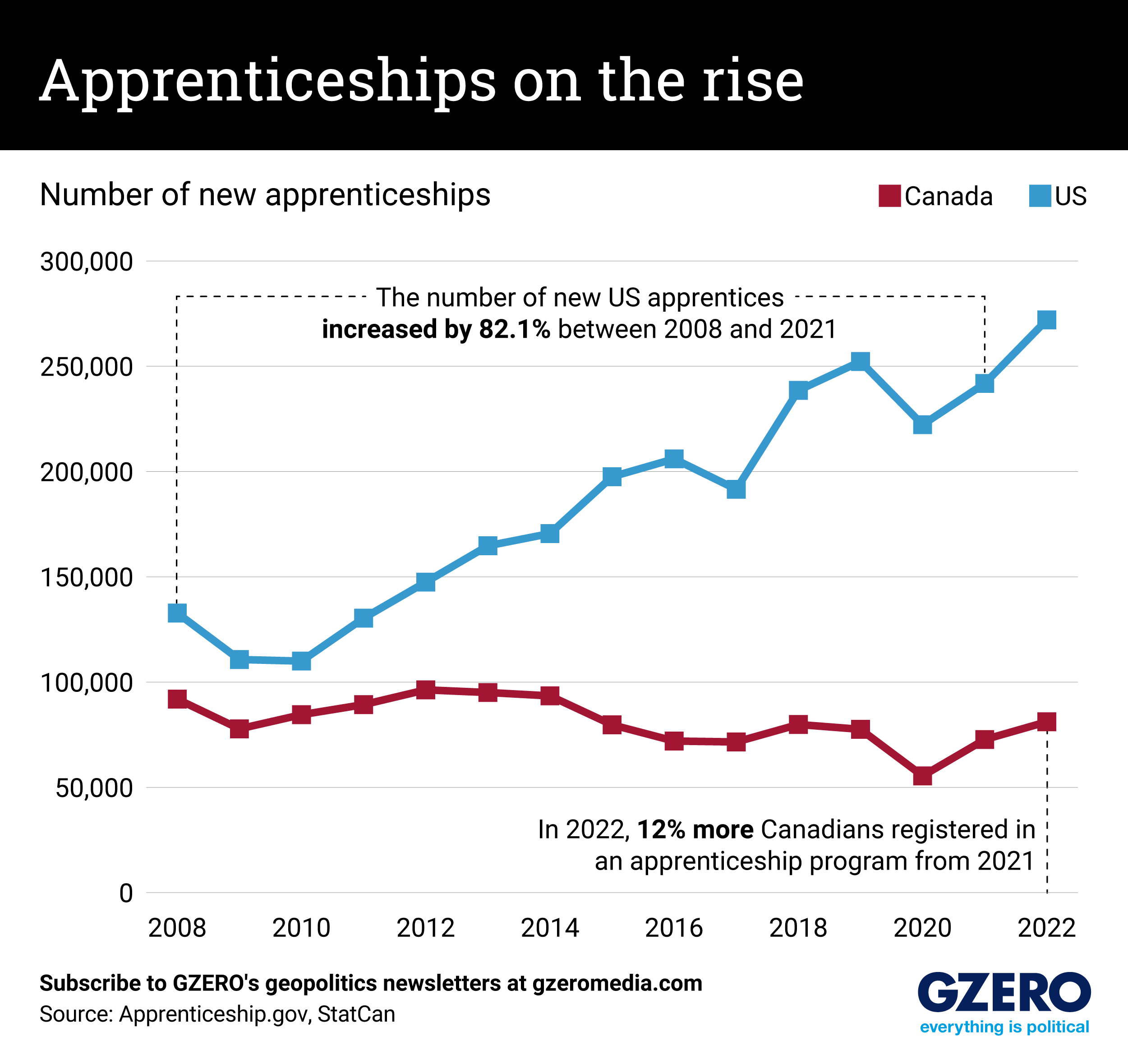February 15, 2024
Whether it’s the price of college, the promise of the gig economy, or simply the desire to get paid while training, apprenticeships are having a moment. In the US, this surge has coincided with an 8% drop in undergraduate college enrollment; in Canada, it comes amid high youth unemployment.
In short, young people want options for brighter futures. As a result, apprenticeships are increasingly becoming an alternative to expensive four-year college degrees, or as a way to forge new careers mid-life. Apprentices get all the benefits of other employees, including wages, while getting valuable on-the-job training.
After dipping during the pandemic, the number of apprenticeship registrations jumped 12% in 2022 to an all-time high in Canada. In the US, they rose 22% between 2020 and 2021 and saw an 82.1% jump between 2008 and 2021.
But this isn’t just a COVID-fueled trend. SAIT, one of Canada's largest post-secondary institutions for apprenticeships, has seen a 20% increase in enrollment over the last two years. So apprenticeships are likely to increase even more in the coming years.
More For You
Bad Bunny during the Super Bowl LX halftime show press conference at Moscone Center.
Kirby Lee-Imagn Images
100 million: The number of people expected to watch the Super Bowl halftime performance with Bad Bunny, the Puerto Rican superstar and newly minted Album of the Year winner at the Grammys.
Most Popular
Think you know what's going on around the world? Here's your chance to prove it.
- YouTube
An imminent US airstrike on iran is not only possible, it's probable.
Americans are moving less — and renting more. Cooling migration and rising vacancy rates, especially across the Sunbelt, have flattened rent growth and given renters new leverage. For many lower-income households, that relief is beginning to show up in discretionary spending. Explore what's changing in US housing by subscribing to Bank of America Institute.
© 2025 GZERO Media. All Rights Reserved | A Eurasia Group media company.
